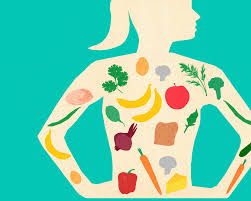
The mechanism by which your body turns what you crave and drink into energy is metabolism. During this complex biochemical process, the calories in foods and beverages combine with oxygen to release the energy needed for your body's function.
Even when you are at rest, your body needs energy for all its “hidden” functions, such as breathing, blood circulation, regulating hormone levels, and growing and repairing cells. The number of calories your body uses to perform these basic functions is known as your basal metabolic rate, something you might call metabolism in general.
Several factors determine your basal metabolic rate, including
-
The size and composition of your body:
People who are bigger or have more muscle burn more calories, even at rest.
-
Your gender:
Men usually have more body fat and muscle than women of the same age and weight, which means men burn more calories.
Your age: As you get older, the number of muscles shrinks, and the fatter your makeup, the more calories you burn.
Lifestyle and Metabolism
-
Eating habits and metabolism
You may have heard that eating certain foods or meals at a certain time of the day can speed up your metabolism. Your metabolism rate is not nearly the same, and it does not matter when or what you want. Or you may have heard that consuming coffee or caffeinated beverages causes weight loss. studies have shown that caffeine reduces the number of calories lost in a short time. But over time, your body will become accustomed to caffeine, and if you drink a regular coffee or tea drink daily, their effects on increasing metabolism and weight loss will not last, products that are used as a booster of metabolism. They are similarly ineffective and have some dangerous said effects.
So do not pay attention to the fast metabolism of food, but pay attention to how it is metabolized. This means avoiding fried foods, such as potato chips; Refined sugars are effective because these energy sources are likely to be stored as fat. Instead, choose whole grains, lean proteins, vegetables, and fruits, which your body can use more readily to burn its functions and activities.
-
Eat plenty of protein at every meal
Eating can boost your metabolism for several hours. This is called the Thermal Effect Food (TEF), which is due to the extra calories needed to digest, absorb, and process nutrients in your meal. Protein causes the greatest increase in food thermic. This increases your metabolism by 15 to30%, while it is 5-10% for carbohydrates and 3% for fats.
-
Drink more cold water
People who drink water instead of sugary drinks are more successful at losing and excreting it. This is because sugary drinks contain calories, so replacing them with water will automatically reduce your calorie intake. Studies have shown that drinking 0.5 liters of water increases resting metabolism by 10 to 30% for about an hour. If you drink cold water, this calorie-burning effect may be even greater, because your body uses the energy needed to heat it to body temperature. Also, drinking water half an hour before a meal can help you eat less.
-
Eat spicy foods
Pepper contains capsaicin, a substance that can boost your metabolism. However, many people can not tolerate these spices in the doses needed to be effective. A study of capsaicin in doses predicted that eating peppers would burn about 10 extra calories per meal. Over 6.5 years, this could be a pound (0.5Kg) of weight loss for a man of average weight.
-
Replace cooking fats with coconut oil
Researchers have found that medium-chain fats, including coconut oil, increase the body’s metabolism by 12% compared to long-chain fats.
You can help maintain an ideal metabolism and a chance at weight loss success by changing your energy balance, or the balance between what you eat and what you burn, through a healthy diet and regular physical activity.




